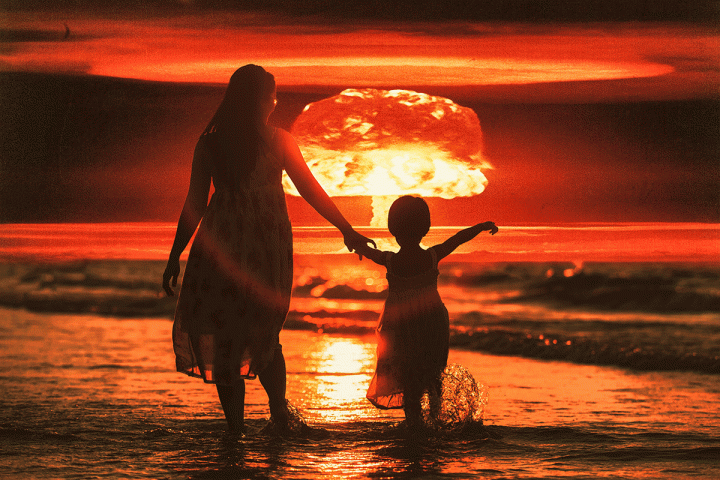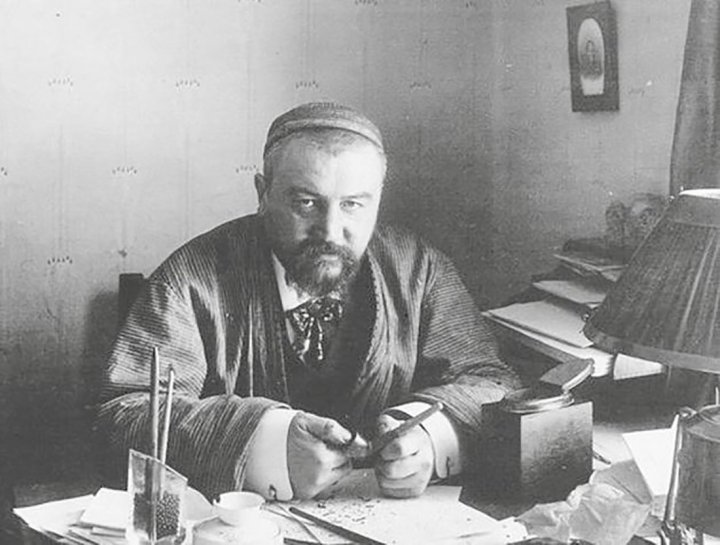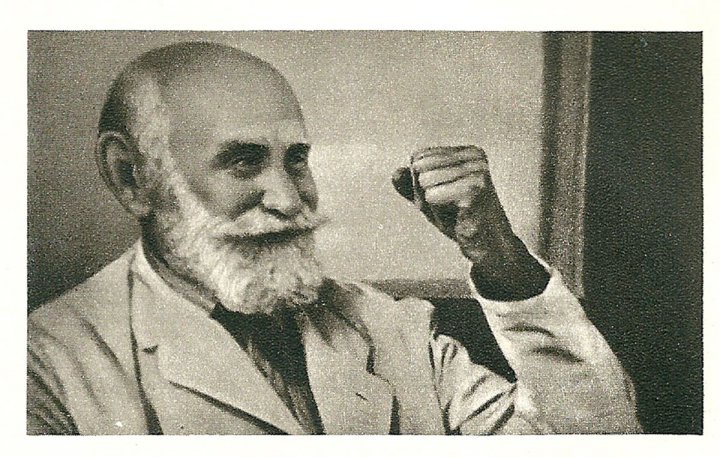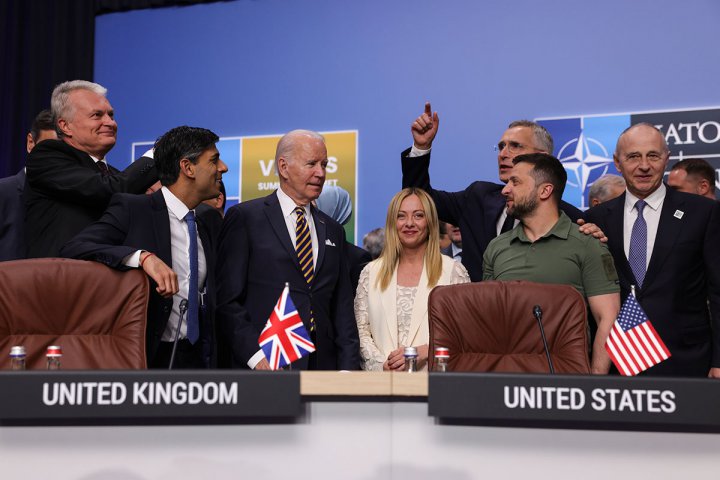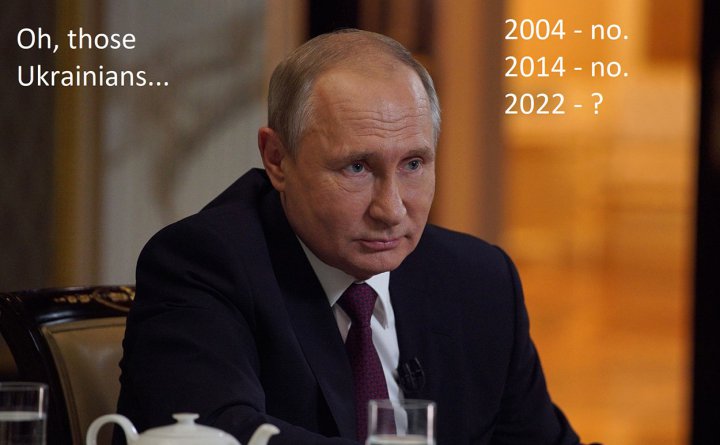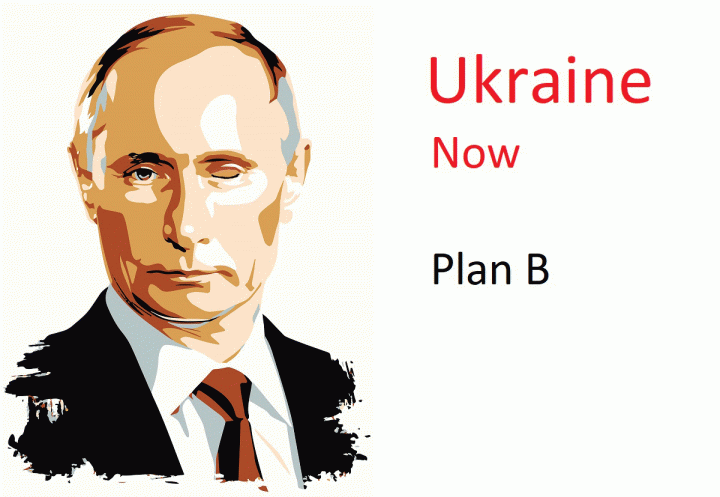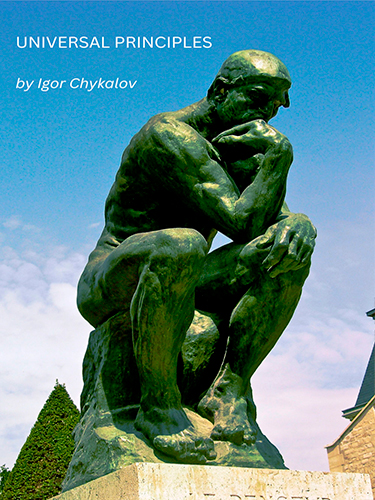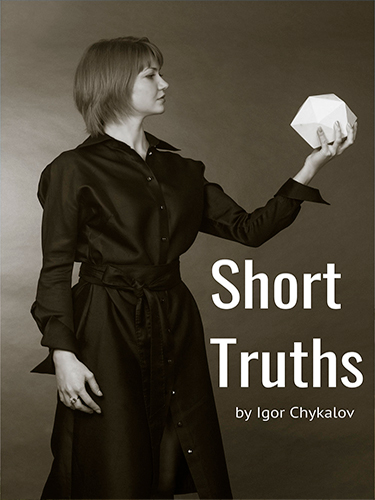The Most Effective Sanctions for “Mystifying Russian Soul”. When?
It may be after Putin launches a nuclear strike on Ukraine.
In January 2022 Mr. Putin has challenged the collective West by demanding the guarantees of Ukraine’s not joining NATO and even the withdrawal of NATO to the borders of 1997. The West answered with a strong and unanimous rejection on all claims.
Then Mr. Putin has recognized “Donetsk” and “Luhansk” People's Republics in response and ordered troops into there on February 21 after the authorities of these two separatist regions of Ukraine asked for a help. Russian troops were already present in Donbass since 2014 so technically everything had been done before.
The main confusion for the West right after the event was: the allies didn’t agree beforehand what they would consider as an invasion. There was an awkward pause on February 21, the next day the collective West came to its senses and answered with the sanctions against a few Russian banks, some oligarchs and their families (without Mr. Putin). Also the Nord Stream 2 pipeline approval has been stopped by Germany. These sanctions were intended to “hurt Russia, and hurt a lot” as Josep Borrell, the EU's foreign policy chief said. However, the collective West again chose not to sanction Russian President personally. This time the sanctions seemed more painful for Russia than the sanctions imposed in 2014 for the annexation of Crimea, but were insufficient to prevent Mr. Putin from full-scale invasion of Ukraine on February 24.
Susanne Wengle, a political scientist who has studied the effects of sanctions on Russia, said then that stopping Nord Stream 2 was likely the most significant move announced on February 22 because of Russian’s heavy reliance on oil and gas revenues. Whether the other sanctions will have much effect is less clear: Russia has spent more than a decade decreasing its reliance on Western imports, Mrs. Wengle said. Its sovereign wealth fund is worth nearly US$200-billion, giving the country a financial cushion. And its debt-to-GDP ratio is 18 percent, making it less dependent on foreign debt markets than other countries (Canada’s ratio, for comparison, is 43 percent and the U.S.’s is 134 percent).
There was again an awkward pause at the West after the outbreak of war activities in Ukraine on February 24.
..........
And Ukraine was forced to go to war and acted quite successfully.
As of the evening of February 27, Ukrainians report tentative losses of the Russian army: planes - 27; helicopters - 26; tanks - 150; armored combat vehicles - 706; “Buk” missile system - 1, multiple rocket launcher “Grad” - 4. It is also written that since the beginning of invasion about 4,500 Russian soldiers have been killed, almost 200 more have been taken prisoner. The captives say they have been told they were going to military exercises, not to Ukraine.
352 civilians have been killed in Ukraine since the beginning of Russian invasion, including 14 children Another 1,684 people have been wounded, including 116 children.
There is no information from Russian side since Russia has made data on army losses not only in wartime, but also in peacetime (!!) a state secret in 2015.
Ukrainians may be embellishing reality to some extent, but it is clear that Russia has failed to take any of its major objectives within 3 days of military actions which means the blitzkrieg has failed. Putin is getting stuck in Ukraine, and now every day of the war will work against him.
The only thing I personally dislike is the info about coming Ukraine-Russia negotiation. This means that all is not so good with Russia, but with Ukraine also. From my subjective point of view such negotiations are pointless, because Putin has repeatedly proved that he did not keep his word.
………
On February 25 European leaders agreed over a new set of sanctions aimed more broadly at the Russian economy and at President Putin personally (at last). However, The New York Times explains very clearly:
“Europe’s economies are deeply intertwined with Russia’s, and the more the European Union leans into Russian sanctions, the more its own members will also feel the pain. The toughest of sanctions could even derail the bloc’s tentative recovery from the recession induced by two years of pandemic.
That is why negotiators left off the table particularly difficult elements — like imposing sanctions on oil and gas companies or banning Russia from SWIFT, the platform used to carry out global financial transactions on commodities including wheat.”
……….
As you can see, Mr. Putin is always one or two steps ahead of the West with its sanctions. However, the main problem is not the tardiness, but the fact that the West does not react enough, because it still does not understand the Russians. It is called “mystifying Russian soul” and different Western leaders try to understand it by "looking into Putin’s eyes" when they need to simply crack down on Russians for just to be listened to.
In short it is a “soul” of habitual criminal – a robber, in particular. Mr. Putin is just a rich robber with oil, gas and nuclear weapon.
……….
Russia and Mr. Putin do not want to blow the world, they just want the world consider them to be able to do that. The worst thing they can really (accidentally) do the fatal thing. The guys like this are tough characters and usually fatalists – they can go until the very end (their own one or someone else's)...
Thus people (or countries) like that benefit much from the fear they make. This is the mentality not just of the habitual criminals, but also of any security, defense or law enforcement agents, military and police officers (Mr. Putin is KGB officer). All of them get used to use a physical force to make you do what they need because basically they don’t know other methods. This applies to relationships with everyone around (their families, friends, enemies, other countries, etc.). That’s why it is better to have a civilian as Secretary of Defense in any country.
If you really want to understand the “mystifying Russian soul” just try to put a former criminal with 10+ years of jail experience on the right track. Let’s say you have a relative and want to help him. 99% of probability you will find yourself in a month or two burnt out, devastated, deceived, and often robbed in addition. One my personal experiment has ended just like that. And the guy hasn't changed despite I put him into really good conditions. These guys cannot bear the good conditions, they prefer tough ones. And they inevitably bring you in the tough conditions also. A leopard can't change its spots. The collective West sincerely tries to change the nature of the leopard and this is the problem the West faces every time while dealing with Mr. Putin and Russia. The West erroneously perceives Russians as the people of the same (Western, Christian, etc) moral values.
No.
Mr. Putin has no respect for (actually, he despises) the West and its moral values. He regards the West as pampered, weak, gutless, divided, too democratic, and incapable for any decisive action. And he keeps on proving that.
..........
Now about relationship between Russia and Ukraine.
Russia cannot let Ukraine go free just like a bad husband-criminal cannot let his beautiful, but muddle-headed wife go to another man simply because of hurt self-esteem and 100% assurance that “she is mine”. Mr. Putin is absolutely sincere when he states that Ukrainians and Russians are “one people”. Similarly, many Russians (not just Mr. Putin) feel the same way about Belarus, Georgia, Armenia, Kazakhstan, and other former Soviet republics. They would gladly protect the Russian-speaking population in the U.S. or in China, for example, but they are afraid. It is called "imperial way of thinking" which is another facet of the mentality of Mr. Putin and a lot of Russians.
Now if to join two facets (willingness to use physical power and the imperial way of thinking) together, you will get understanding of something like 75% of the "mystifying Russian soul”. Russians understand and respect only physical strength, so the West have to deal with them harshly right away. Otherwise it doesn't work.
……….
Ok.
So are there any harsh ways to make Mr. Putin to do (usually not to do) anything ugly - in particular, to stop the war in Ukraine? Of course, there are.
There are many things which can be done.
The West can disconnect the Russian economy from SWIFT, from Visa and Mastercard payment systems, cut off access to the Internet and high-tech products, exclude Russia from the UN and other international organizations, make Mr. Putin a persona non grata in many countries, declare Russia a sponsor of terrorism for using Private Military Company “The Wagner Group”), to freeze the assets of Mr. Putin and his cronies which they keep in the West (!!), introduce economic sanctions against the Central Bank of Russia, impose an embargo on the sale of oil and gas (as it was done to Iran)… However, all that requires an understanding of 1) that Russia is an adversary; 2) it is uncorrectable by the ordinary means; 3) a unified political will; and 4) a proper response.
And even this understanding is hard to implement since there is a powerful pro-Russian lobby in the US and various European countries, generously fed by the Kremlin. Even an interesting special term appeared - "shroederization". It is coined after a former chancellor of Germany Gerhard Schröder who works for Mr. Putin as the chairman of the board of Nord Stream AG and Rosneft. He is the main lobbyist of Russia’s interests in Germany.
……….
Any of the above-mentioned sanctions could have been applied in 2014 after Russia's annexation of Crimea and there would have been no “Donetsk” and “Luhansk” People's Republics.
Why haven’t been those sanctions applied then? Because the West is pampered, weak, gutless, divided, too democratic, and incapable for any decisive action.
Mr. Putin is right about the West. Western countries mostly express "concerns" and do practically nothing. For example, Russia was not expelled from the UN for the armed annexation of Crimea even though Mr. Putin himself acknowledged this fact in documentary television film «Crimea. The Way Home» in 2015. By the way, this is a classic manifestation of the criminal mentality: to do a nasty thing and brag about it after. The League of Nations (the UN’s predecessor) has expelled the Soviet Union after it invaded Finland in December 1939.
……….
Almost each of the above sanctions being adopted timely could have prevented a war in Ukraine. Russia began pulling troops to the Ukrainian border in October-November 2021.
Let’s take, for example, the sanctions against the Central Bank of Russia.
Michael S. Bernstam, a research fellow at the Hoover Institution at Stanford University, explains in a lucid manner what this action alone can do to stop the war in Ukraine:
1. Now Central Bank of Russia has the reserves of $638 billion for supporting the exchange rate, stability of the national currency, the banking system and to manage the sovereign wealth fund of $185 billion for fiscal emergencies.
2. These reserves are largely electronic book entries in the Russian Central Bank accounts with the Federal Reserve, the European Central Bank and similar Western institutions. There are no physical bonds and certificates.
3. If sanctions hit, Russia’s $638 billion shrinks to their salvage value which is only $12 billion in dollar and Euro-denominated cash in the vaults of the Russian Central Bank.
4. The Russia Central Bank’s gold of $139 billion of value is hard to sell en masse, especially if the Central Bank falls under the Western sanctions.
5. If sanctions are imposed on the Russian Central Bank, the $403 billion of its FX electronic holdings in the West could not be used. Russia will be left with little Western cash, unsaleable gold and Chinese bonds.
The author’s conclusions:
“Central Bank sanctions will ensue three ruinous runs: on foreign currency, on banks and on the supply chains. With only $12 billion available to prop up the ruble, the exchange rate will devalue and collapse. People will run on whatever foreign currency they could obtain at whatever price, as the store of value.
The banking system will fold unless the government forcibly converts FX-denominated deposits into rubles. Either outcome would cause social unrest. It will be exacerbated by the inaccessibility of the sovereign wealth fund to support government social expenditures. Across the supply chains, suppliers will demand dollars from customers, and efficient parts of the economy will dollarize. The rest of the economy will incur supply bottlenecks and stoppages and resort to barter. The economy will break apart and beget long-term political instability. “
And that is without the cost of the war in Ukraine.
……….
Mr. Putin is considered a master of tactics in the world of politics. He prepares for each meeting with other leaders for a long time and is able to get what he needs from them (like at the meeting with Mr. Trump in Helsinki in 2018 or Mr. Biden in Geneva in 2021). That is why, apparently, many leaders do not like or even are afraid to meet with Mr. Putin. They are afraid of losing publically.
Nevertheless, some countries afford to go to war with Russia like Turkey did in Syria in 2020 (Spring Shield operation). China is slowly "economically" taking over Russian Siberia. Saudi Arabia stifled the Russian economy with ultra-low oil prices in 2020… So Mr. Putin, like everyone else, can lose, and he is only scary to those who are entangled in their democratic illusions.
……….
Now the West is on the move. It is almost ready to disconnect Russia from SWIFT (not the strongest measure) and at least it says something about sanctions against the Central Bank of Russia. Germany is going to reduce gas purchases from Russia and even sends weapons to Ukraine including antiaircraft missiles and tank-busting rockets in a reversal of earlier policy.
However, it may be (as always with the West) too late. Mr. Putin is getting stuck with his invasion due to the bravery of Ukrainians and any day he can order to launch a nuclear strike on Ukraine.
Will the West express the next "biggest" concern after?
..........
P.S. Dear Reader! I am very much interested in your opinion on the subject of this article. Please, write a comment or ask a question if you want to clarify something.
Yours,
Igor Chykalov
Comment
✚ Add comment
